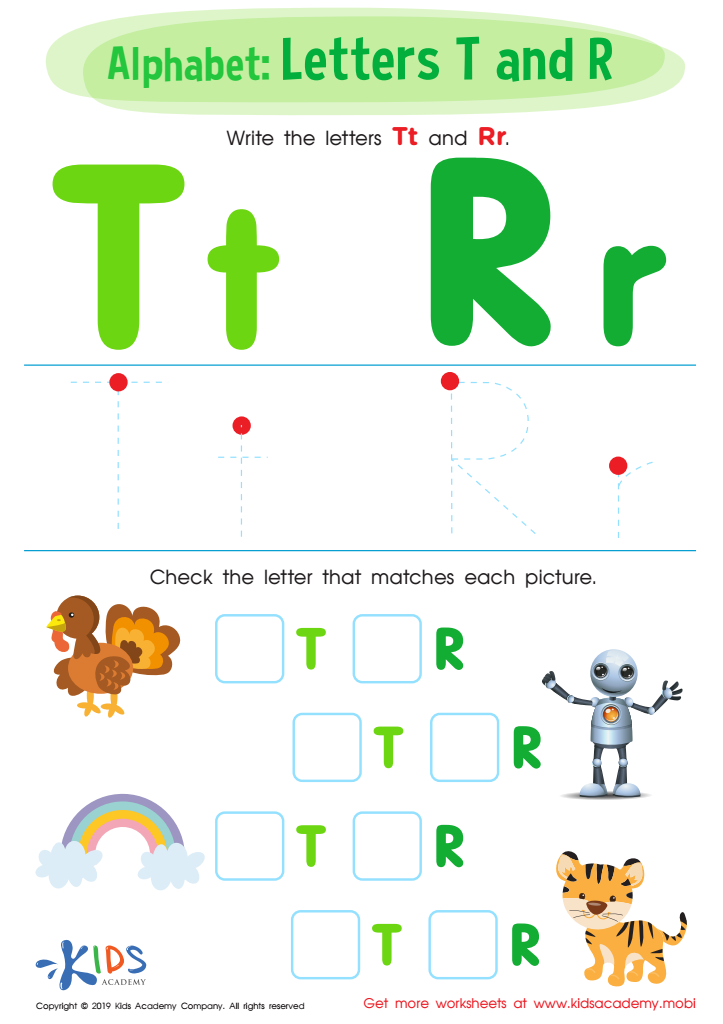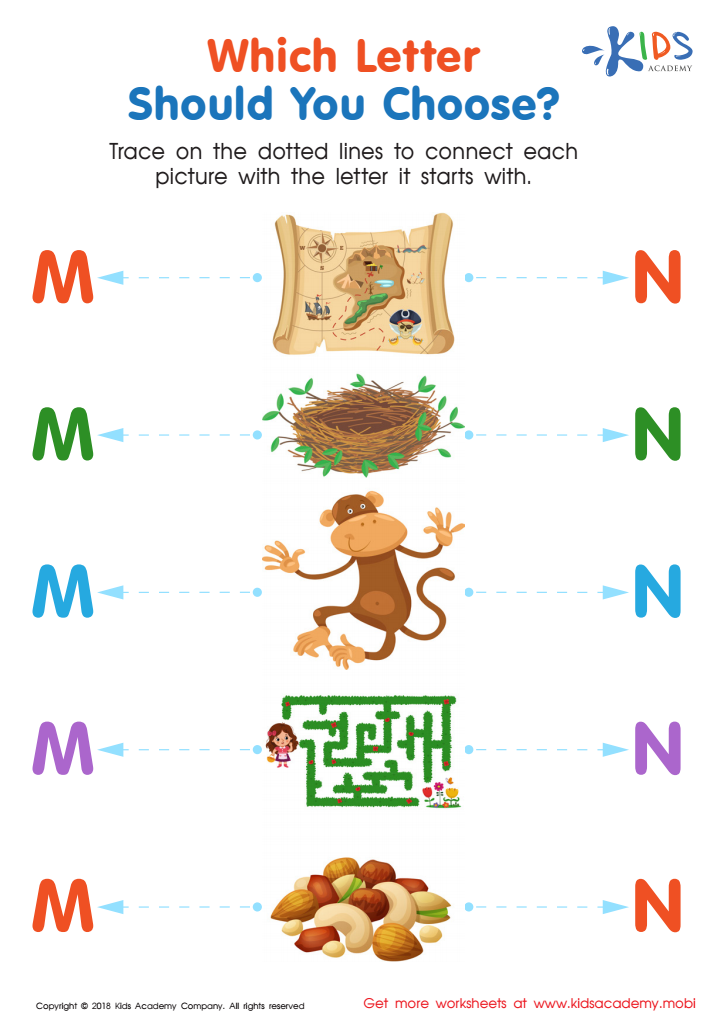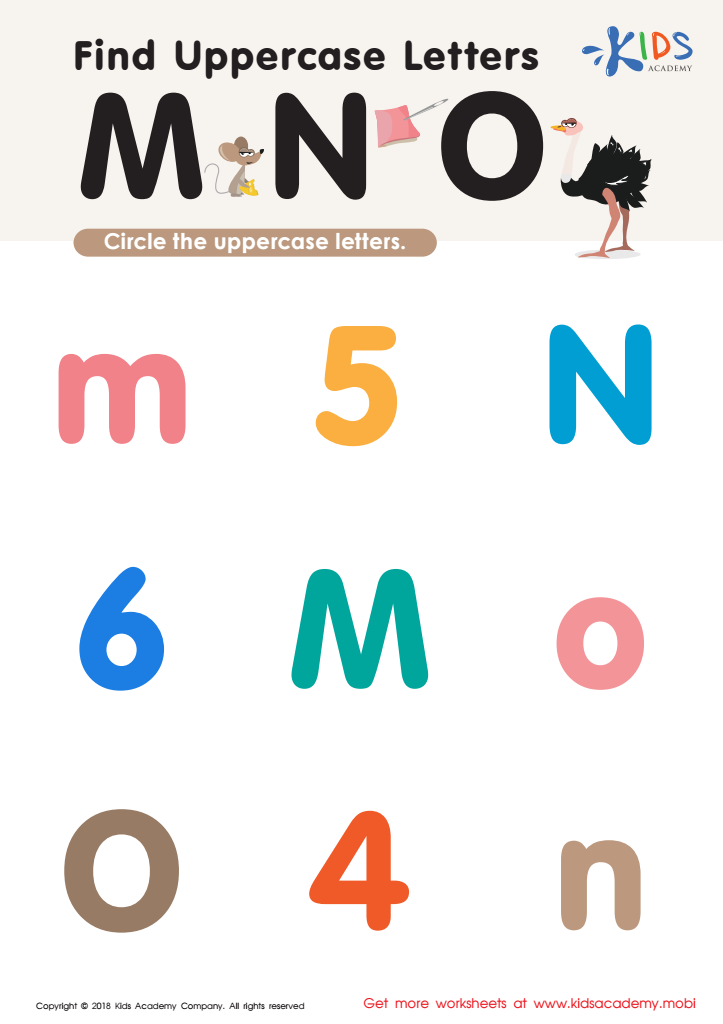Alphabetical order Alphabet Worksheets for 5-Year-Olds
3 filtered results
-
From - To
Introduce your child to the fun of organization with our Alphabetical Order Alphabet Worksheets designed for 5-year-olds. Perfect for early learners, these worksheets help kids master the concept of alphabetical sequencing while engaging in fun, educational activities. Every sheet encourages practicing alphabet recognition, ordering skills, and reinforces early literacy. Through colorful and age-appropriate puzzles and exercises, children develop a strong foundational understanding of alphabetical order. Ideal for kindergarten classrooms or home learning, our printable worksheets make mastering the alphabet both enjoyable and rewarding. Boost your child's confidence and academic success with Kids Academy's expertly crafted resources.


Letters T and R Worksheet


Which Letter Should you Choose? Worksheet


Find Uppercase Letters M, N, and O Worksheet
Introducing 5-year-olds to the concept of alphabetical order is crucial for both parents and teachers. Understanding the order of the alphabet lays a foundational skill essential for literacy. Young children rely on alphabet knowledge to decode words, which is a significant part of reading development. By grasping alphabetical order early on, kids become more adept at phonics, allowing them to recognize patterns in words and improve their reading efficiency.
Alphabetical knowledge also supports critical thinking and problem-solving skills. When children understand how to arrange letters and words in a specific sequence, they're better able to comprehend organizational systems, which are used in everything from dictionaries to libraries.
Additionally, familiarity with alphabetical order aids practical life skills. It helps children navigate resources both in physical settings, like library books and directories, and digital interfaces, such as lists and files on a computer. This early mastery is not just about academics—it's empowering. When young learners are confident in their ability to handle basic tasks, they experience a boost in self-esteem, encouraging a positive attitude toward learning as a whole.
In essence, teaching alphabetical order enhances literacy, promotes cognitive development, and builds confidence, setting a robust foundation for academic success and everyday problem-solving abilities.

 Assign to My Students
Assign to My Students





.jpg)








